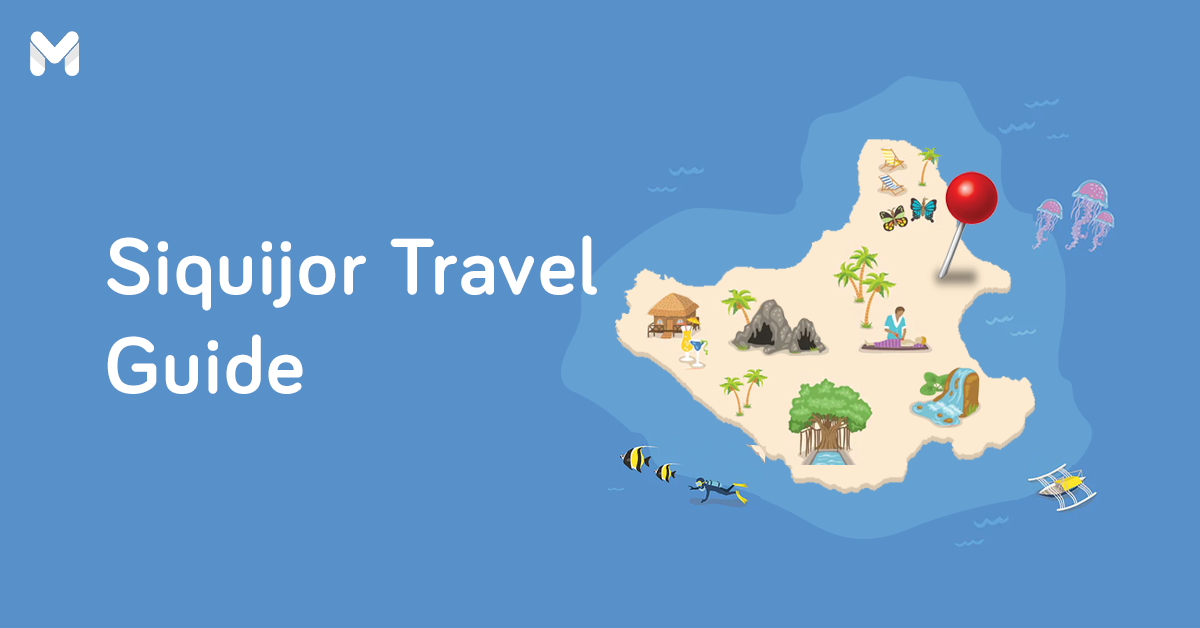There's much to be said about traveling to enjoy new things, bask in exciting cultures, and soak up stunning views. But arguably, the best part of exploring the globe is experiencing a myriad of new flavors and textures—a rich, piping-hot bowl of Thai tom yum, a crunchy-on-the-outside-but-soft-on-the-inside French baguette, and tender Japanese nigiri dipped in soy sauce and dabbed with a bit of wasabi, just to name a few.
But even if you pick the cheapest countries to visit, food—along with visa fees, airfare, airport fees, and accommodation—can get expensive abroad. Fortunately, you can still enjoy your holiday. You just need to know how to save money on food while traveling.
🛡️ Get Travel Insurance for Your Trip Abroad
Ready to jet-set? Before everything else, avail of travel insurance to make sure you're financially protected from uncertainties during your trip. Compare your options via Moneymax and explore offerings from the country’s top insurers:
|
Provider
|
Starting Premium
|
Medical/Accidental Death or Disablement Coverage
|
Trip Cancellation Coverage
|
Baggage Loss/Damage
|
|
OONA Travel Insurance
|
₱299
|
Up to ₱5 million
|
Up to ₱128,000 | Up to ₱42,600 subject to ₱4,000 per item |
|
PGAI Travel Shield Insurance
 |
₱361
|
Up to ₱2.5 million
|
Up to ₱200,000 | Up to ₱50,000 subject to ₱10,000 per item |
|
PGA SOMPO TravelJOY Plus
|
₱463
|
Up to ₱2.5 million
|
Up to ₱70,000 | Up to ₱5,000 per item |
|
Cocogen Travel Excel Plus
 |
₱263
|
Up to ₱4.2 million
|
Up to ₱214,000
|
Up to ₱102,000 subject to ₱12,700 per item
|
Learn more about travel insurance by clicking the banner below:
How to Save Money on Food While Traveling Abroad
Before you even get to your destination, however, you need to survive your flight. Since airports tend to charge exorbitant rates for snacks, consider packing your own food for long-haul flights.
What kind of food should you bring on vacation to save money? As a rule of thumb, don't scrimp on nutrition. Protein-packed snacks,[1] such as seeded bread sandwiches, nuts, trail mix, and granola bars, are the perfect long-lasting food for long-distance travel—they're filling and don't spoil immediately.
Remember to check the TSA requirements[2] before choosing which food to carry for the long journey ahead. Generally, you need to stay within the 100ml limit for liquid or gel food items in your carry-on. If possible, try to avoid liquids such as sauces and salsa altogether.
Once you get to your destination, here's how to save money on food while traveling abroad:
🍽️ DIY Your Own Meals
-Nov-24-2022-09-06-33-8154-AM.png?width=636&height=424&name=Pics%20for%20blog%20-%20600x400%20(6)-Nov-24-2022-09-06-33-8154-AM.png)
Plenty of hostels, hotels, and bed-and-breakfasts offer complimentary breakfasts and afternoon snacks, so take advantage of that. But if you want to try your hand at cooking instead, pick accommodations that offer access to a kitchen, especially a microwave and a refrigerator.
Check out the foreign produce at the local grocery store or market and cook your own meals—you don't eat out three times a day back home, after all!
Here are a few other tips on how to save money on food when traveling:
- Go for easy-to-cook meals that don't require any special expertise, such as scrambled eggs, stir-fried noodles, pizza, salad, pasta and tomatoes, and grilled sandwiches.
- If you're in a hurry or don't trust yourself anywhere near a stove, you can also try local canned goods, ready-to-eat meals, and snacks. Convenience stores in Japan are particularly known for their ubiquity and remarkable range of snacks and microwave meals.
- Don't forget to bring a bite to eat during long, exhausting tours or excursions. Snacks in such areas typically get more expensive.
🍽️ Skip the Fancy Restaurants
-Nov-24-2022-08-09-52-1663-AM.png?width=641&height=427&name=Pics%20for%20blog%20-%20600x400%20(5)-Nov-24-2022-08-09-52-1663-AM.png)
If you really want to book a special night out in a restaurant, look outside the touristy areas, where prices are ridiculously jacked up. That said, you don't need to visit a fancy restaurant to get a taste of authentic local cuisines.
You also have plenty of other alternatives if you're looking for options on how to save money on food when traveling.
Here are some of them:
- Ask locals for their recommendations. You can't go wrong by asking the hotel or hostel staff for their recommendations. You can also browse travel-related subreddits or forums to find more options.
- Cafe rates are often cheaper, especially when they offer special deals during lunchtime.
- Check out well-loved mom-and-pop joints in the area as well. They're a classic for a reason!
- Instead of grabbing dessert in the same restaurant after your meal, head to the local convenience store to discover local sweets, chocolates, pastries, and ice cream.
- On your way back home in the evening, drop by a bakery to buy baked goods at a reduced price. This practice of selling day-old bread is particularly common in Europe, which prides itself on its pastries.
- Try street food or check out food trucks. It's one of the best ways to fully immerse yourself in a foreign country—not to mention save money on food while traveling. For instance, the vibrant street food scene is part of Singapore's lifeblood—it's even recognized by UNESCO.[3] Pick a busy stall with long lines so you can ensure they serve fresh food. You don't want to spend the rest of your vacation lying in bed with a stomach flu!
- Want to avoid tipping? Go on a picnic. Take your blanket, aperitif, and your picnic basket. Enjoy the fresh air, your loved ones' company, and the calming lake scenery at Villa Borghese in Rome, or the breathtaking view of the Eiffel Tower at Champ de Mars in Paris.
🍽️ Drink Responsibly
-Nov-24-2022-09-59-58-8669-AM.png?width=639&height=426&name=Pics%20for%20blog%20-%20600x400%20(7)-Nov-24-2022-09-59-58-8669-AM.png)
And by that, we mean don't splurge on overpriced drinks. You can still enjoy yourself abroad without blowing all your cash. Here's how:
- Buy drinks at the supermarket or convenience store, where they're sold at cheaper prices than at restaurants or bars. Take note that countries such as Thailand ban small retailers from selling alcohol, while others such as Finland, the UK, and Ireland impose heavy taxes on beer.[4] Remember to drink in moderation. You don't want to waste a portion of your vacation in a hungover daze!
- Skip the pricier sodas, juice, and shakes in favor of water. These sugary drinks can leave dehydrating effects on the body. Keep yourself hydrated with plenty of water, especially if you're traveling in a humid country or going backpacking.
- No matter the country, bottled water can get expensive. You can survive drinking tap water in places like Japan and Singapore, but you can't exactly say the same for others. Bring a water flask and refill as needed at water dispensers in mall food courts.
✈️ Book Your Trip Now, Pay Later with UnionBank Personal Loan!
Fulfill your travel goals without worrying about your budget. UnionBank has got your back! You can easily apply online for a UnionBank Personal Loan—no collateral needed—and get extra cash for booking your trips. Borrow up to ₱2 million and have your loan disbursed in as fast as 24 hours!
🍽️ Take Advantage of Food Promos
This tip to save money on food while traveling is so obvious, but so easy to forget. Here's how to make the most of food promos:
- Search for apps or platforms that offer food promos from various establishments. For instance, Eatigo—which is available locally and in countries such as Thailand, Singapore, Malaysia, Hong Kong, India, and Indonesia—is a restaurant reservation app that offers discounts of up to 50% off.
- Bring a credit card designed for travel and/or dining. Depending on the card, you can enjoy discounts, rewards points, cashback, and more. Compare some of your best options below and apply via Moneymax:
| Credit Card | Annual Fee | Dining Features and Benefits |
|
UnionBank Rewards Credit Card
|
₱2,500
|
|
|
Metrobank Titanium Mastercard®
|
₱2,500
|
|
|
Metrobank Platinum Mastercard®
|
₱5,000
|
|
|
Metrobank World Mastercard®
|
₱6,000
|
|
|
HSBC Red Mastercard
|
₱2,500
|
|
|
Security Bank Complete Cashback Platinum Mastercard
|
₱3,000
|
2% cashback on dining
|
|
BPI Amore Platinum Cashback Card
|
₱5,000
|
Up to 4% cashback on dining or online food purchases
|
Related reading:
- Being Your Own Tour Operator: Guide to DIY Travel Planning
- On a Budget? Travel Tips and Hacks to Try for a More Meaningful Trip
Final Thoughts
When traveling abroad, trying out local cuisine is non-negotiable. The trick is to learn how to save money on food while traveling. You need a little extra cash for souvenirs to remember your holiday by, after all.
To navigate the local dining scene, don't rely too much on the Instagram-famous spots as these tend to be tourist traps. Eat like a local, as they say.
Sources:
- [1] Snacks on the plane: Chefs share their favorite high-altitude bites (Washington Post, 2022)
- [2] What Can I Bring? (TSA)
- [3] Singapore street food added to Unesco heritage list (The Guardian, 2020)
- [4] Beer Taxes in Europe (Tax Foundation, 2023)







_1200x350.png?width=1200&height=350&name=Travel_Insurance_Generic_(Oct_2023)_1200x350.png)
_1200x350.png?width=751&height=219&name=UB_PL_Generic_2_(Jan_2025)_1200x350.png)
%201200x350%20CTA.png?width=1095&height=319&name=UB%20PL%20Generic%20Ad%20(Sep%202023)%201200x350%20CTA.png)










